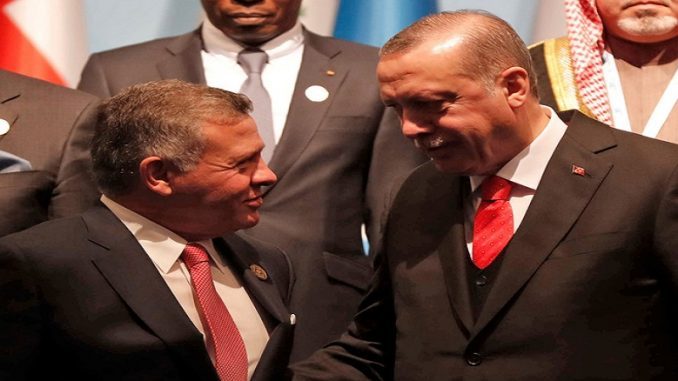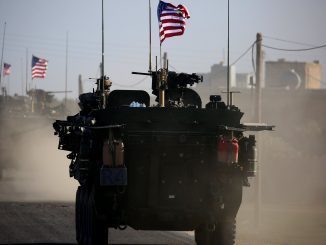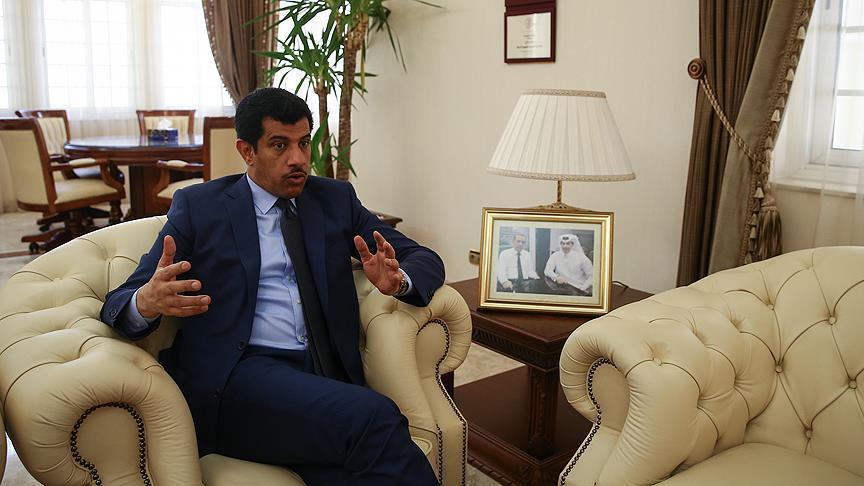
Jordanian King Abdullah quietly visited Istanbul and transited to Tunis. King Abdullah was President Erdogan’s guest on Saturday at the Huber mansion in Tarabya, where the king’s grandfather had also lived for a period of time.
It is obvious that the king’s brief business visit was not unrelated to the latest developments in the region. The limited information reflected in the media made it clear that both sides discussed the Palestine and Syria issues, and focused on further cooperation. Attendance by both the foreign and trade ministers in meetings with the king also shows a pursuit to increase economic cooperation between the two sides.
Jordan’s King Abdullah is at a crossroads
by: Zekeriya Kurşun
Jordan made a mistake by recently canceling “the partnership deal instituting free trade between Turkey and Jordan,” which has been effective since March 2011. This deal, which stipulated reciprocal customs discounts, was cancelled on the grounds that it was supposedly harming Jordan’s industry. Thus, when negotiations did not help, it was terminated. However, in our opinion, this time Jordan played for the wrong side. By canceling the deal at a time when the U.S.’s Iran embargo decision is on the agenda, it set its sights on turning the situation into a deal in its own favor. Upon receiving certain promises from the U.S., it unfortunately backed down from this deal, which was in favor of both sides.
Even though their capacity and positions are not alike, Turkey and Jordan are two countries that are most affected by regional developments. Turkey’s sensitivity regarding Palestine is obvious. As for Jordan, it is the country where the greatest number of Palestinian refugees reside – or more correctly, a country whose population is predominantly Palestinian. The conflicts of interest in the Middle East between Turkey and Israel, and attempts in recent years to change Jerusalem’s status, consequently brings Turkey and Jordan together on a common ground.
The country that has the longest border with Israel and thus receives the greatest threat is Jordan. Additionally, the Jerusalem matter is of vital importance for King Abdullah’s own legitimacy as well. Consequently, despite all the pressures with respect to Jerusalem, for now, he is left outside the approach of U.S. President Donald Trump and Saudi Arabia-Egypt. All data shows that Jordan is obliged to act together with Turkey regarding the Palestine-Israel conflict and the two-state solution. The U.S.’s announcement last week that it stopped aid to Palestine and attempted to form pressure in favor of Israel has made cooperation between Turkey and Jordan obligatory once more.
Meanwhile, as countries most affected by the developments in Syria, it is obvious that the Turkey and Jordan do not cooperate enough. Though as not as much as Turkey, Jordan, which has had to take in a large number of Syrian refugees, has felt the need in this respect to act together with the monarchies that fear the Arab Spring process. In a sense, it has been left face-to-face with Saudi Arabia’s blackmail.
Either make or break
Jordan, which appears as the region’s most stable country in recent years, is, contrary to what is being perceived, on edge. Built on a synthetic structure that rose with World War I, Jordan has more problems than Syria and Iraq. As it is aware of this, it has based its existence on the competitions in the region and especially the protection of the U.K., which ensured its establishment. The conflicts – or more correctly competition – in the region in recent years changing sides on a daily basis has made Jordan dizzy as well. For example, Jordan is never mentioned in any of the regional policies developed by Russia. Yet, it is mentioned in the so-called Arab NATO, which is the U.S.’s attempt to form a bloc against Russia and Iran’s expansion, and to indirectly hinder Turkey’s ventures. As much as being seen as a tool in the region’s competition rather than an actor disturbs Jordan, it is also a threat aimed at the country’s security. As the U.K. has still not been able to return to regional politics, which was abandoned since its process of leaving the EU, it is quite far from designing Jordan’s politics.
Jordan is almost back to its original settings which were prevalent in its founding years. Just as the decisions it makes will allow it to maintain its presence in the region as a stable government, it can also lead to completely opposite results. Maintaining the possibility that regional competitions may rapidly change and turn into alliances, the competition between Turkey and Saudi Arabia today as two actors in the Middle East is a fact. There is no doubt that these two actors are going to be effective in the future of the region. Saudi Arabia uses the advantage of its means and the fact that numerous Arab states are dependent on it. As for Turkey, it is in this competition with its state tradition, dynamic population and being among the world’s most important economies, as well its non-negligible geopolitical position in the U.S. and Russia’s regional policies. It seems that Jordan is stuck between these two structures.
In history, King Abdullah’s great grandfather Shariff Hussein had founded the Hejaz Hashimi Dynasty by listening to the British and betraying the Ottoman Empire. However, the British further encouraged the ambitions of Abdulaziz bin Saud, who wanted to expand toward Hejaz at the end of the war, let alone stop him. Hence, they overlooked the elimination of the state of Shariff Hussein, who had once allied with them. King Abdullah’s great grandfather Shariff Hussein openly and his namesake grandfather more discreetly and through implication both declared the remorse of treachery and died. We hope that when choosing his side, King Abdullah will learn a lesson from history. He will either continue cooperating with those who eliminated his grandfather’s state, or turn over a new leaf and make his own history.



